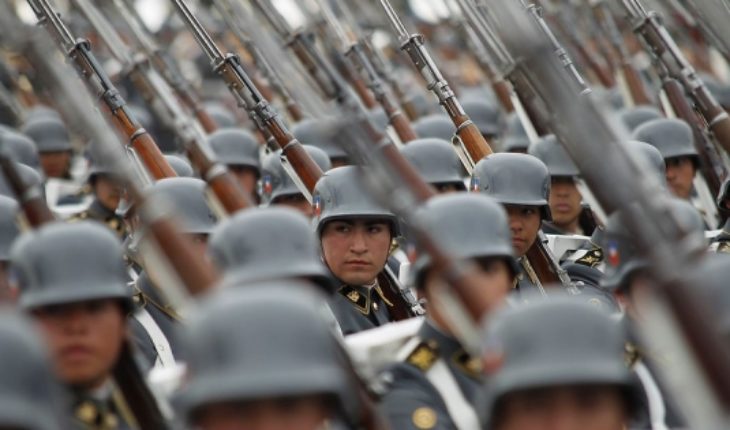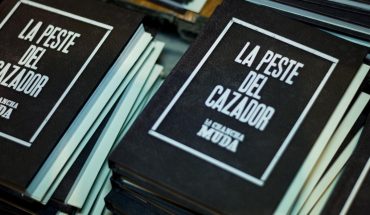The Army Glories are celebrated on 19 September, a holiday that is usually used by many as an extension of the celebrations of 18 September. It was established in 1915 to recall the military exploits of independence and the Pacific War. Today, however, they are not worth celebrating. Moreover, it seems to me that it is an ethical imperative to reject all kinds of celebrations to the army. Two reasons suggest this resolution to me.
Firstly, the regrettable role of the armed institutions in the systematic violations of the most essential human rights of our compatriots for almost twenty years is still very present in memory. Regardless of the remainder of the memory – which would justify suspending indefinitely any kind of celebration – the armed forces have not fulfilled the slightest reparation duties. These duties consist, essentially, of providing as much information as possible on the whereabouts of the missing detainees. A while back, the commander-in-chief of the army pointed out that his institution no longer has any more information on the issue. His answer is at least mediocre.
Clarification of the truth about the whereabouts of compatriots, possessing dignity and essential rights by virtue of their status as persons, who were subjected to physical and psychological torture, must be an institutional policy, if only true that there is a commitment to human rights, as has been said (and broadly speaking, to a truly ethical conduct of the institution). In the absence of such a policy, the military ceases to fulfil an essential condition of ethical-political legitimacy in a democratic context. My reference to democracy must be understood, not in the sense of rule of the majority but in respect for certain essential values of social coexistence. Thus, the army, with its unjustified omission, ethically impermissible, is put out of all kinds of social, political and moral legitimacy.
The second motive is more general, and relates to the nature of the role of the armed forces as human activity. In this sense we must ask ourselves: what is the purpose or meaning of the existence of professional armed forces? This question must essentially be linked to the social role of this activity: how does society benefit from it? My answer to this question is this: the only ethical purpose that can be attributed is the defense of compatriots against external enemy forces.
While I do not have the historical powers to refer rigorously to the next question, I speculate that, from a historical point of view, the army does not fulfil this purpose at any point in history (except, perhaps, the war of independence), and, moreover, has serious attack on this end on more than one occasion. The Pacific War could be interpreted as an act of aggression motivated by economic interests. Not in vain neighbouring countries have consistently appealed to this fact. And the military dictatorship has been, among all, the blackest episode of the armed institutions. At this point, it is not even worth mentioning the “normalization” of social life after the UP. In strict rigour, normality never returned, except several years after democracy and a lot of compatriot pain.
Let’s go back to the answer to the question. Philosophically speaking, military activity is not stricto sensu, good, but ethically permissible in certain contexts. There is no goodness that arises from military activity. At most, it may have moral justification under very specific and delimited circumstances. It is an activity, ethically speaking, very modest and very risky. Modest because it is not oriented towards good (but is limited to countering an evil), and risky because it implies the possibility of great evil if the power that implies rationally is not used.
A serious moral analysis of the situation experienced in dictatorship may shed light that there is, in general, no justification for gratuitous cruelty. Anyone who reads fundamental texts of war ethic will realize that none of the hypotheses of ius in bello and ius at bellum are fulfilled. Anyone who says “we were at war,” as a reason to justify gratuitous violence, makes a fool of itself. Anyone who says that “Pinochet saved us from being like Venezuela” has missed even the flexible utilitarian calculation. The evils caused by the dictatorship are not remedied by any “good” that can be attributed to it.
In the absence of certain conditions of virtue and prudence, military activity can only lead to great evils. And in the case of Chile, military activity has created great evils. Let us think of the various accounts of torture in the Valech report: only a mind shaped by military training can “give light” to such profound horrors. Therefore, the FFAAs do not deserve the slightest recognition. Rather, they require a skilful and prudent political power that will enforce the minimum duties that they have insisted on in breach.
The FFAAs are due in Chile. Along with a privileged pension status relative to the rest of the Chileans, they have been at least negligent in all kinds of reparations for the damage caused during their rule (in the face of such evil it is not even worth considering the “pacogate” or the “migate”). It is impossible to expect any full reparation (because no one can revive the dead, only God); but at least, an institutional commitment can be expected in clarifying the truth. Many ask for just that: true. To ask for justice, after so many years and so much impunity – and with the complicity of political power – seems a chimera.
The FFAA doesn’t deserve recognition. And even under the hypothesis that they have exercised their role in a virtuous and prudent manner (in a possible world it never was), they would only deserve measured respect. It is understood, then, that because of its black history, it should be celebrated, much less rightly. I dare not say that they should be despised, for no one deserves to be despised, not even one who despises the lives of others. They should, it seems to me, be the object of a disputing silence. Only in this way will we do justice to the respect that the pain of their victims deserve.
The content poured into this opinion column is the sole responsibility of its author, and does not necessarily reflect the editorial line or position of El Mostrador.





